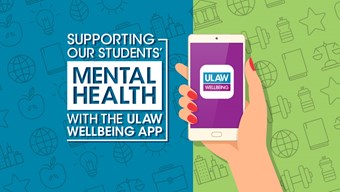On 8th March, to highlight International Women’s Day, we will be holding the latest in our ‘Evening with...’ series of events. This month’s event features General Counsel for FBN Bank (UK) Limited Lesley Wan. Ahead of the event, we caught up with Lesley to discuss her career progression and founding the female network Eagle Club.
By Cara Fielder. Published 24 February 2021. Last updated 19 August 2022.
Working in my parents’ fruit and vegetable shop in Auckland, NZ, the only solace I had from the boredom was to listen and sing along to the radio. Consequently, I have a huge repertoire of songs which I learnt by heart and can still sing today. I had a tiny bright pink plastic weaved chair that I sat on behind the counter and waited to serve customers. I learnt how to count money in change. Every night, my father would calculate the income in the till using an ancient form of calculator - a big black wooden abacus. It was never my dream to be a lawyer; I desperately wanted to be an actress and a singer.
Since the age of five, my parents made it clear that their expectation was for me to become a lawyer or a doctor. From eight years old, I had to work every Saturday at the shop with my mum and every day after school.
Now I am the General Counsel, Whistleblowing Officer and Chief Conflicts of Interest Officer for FBN Bank (UK) Limited and responsible for the Company Secretariat. I sit on the Executive Management Committee and I am the legal advisor to the Board of Directors. I have been in this role for three years. It has been the most challenging position I have ever undertaken in my life, but also the most diverse and interesting. It has given me the widest breadth of experience that you can imagine for an in-house role.
I have a small, tight-knit team. We have to be dynamic managing legal costs and a heavy workload for an organisation operating in the world’s most regulated sector. The role is intellectually stimulating as I have the opportunity to get involved in everything, unlike my previous role in a big bank, where there is a large legal team with specialists managing different sectors. I get involved in everything, including regulatory matters, leading independent investigations and reporting to the Financial Conduct Authority and the PRA. I manage complex litigation matters including professional negligence, employee relations, advising on restructuring, recovery work, strategic thinking and advising on board matters. I honestly believe that in the first 12 months in this role, I learnt more than I did in my previous role of 10 years.
It's important to be open-minded, thoughtful and resilient when undertaking an in-house role. You never know what is going to hit your desk on a daily basis. Every day is different. However, at this stage in my career, I have had many years of experience dealing with difficult situations. My role is to remain calm and provide strategic guidance. I help to steady the ship and find practical solutions to help the business overcome material issues.
My parents were immigrants to New Zealand (NZ); they were both born in China, so they speak fluent Cantonese. Until the age of five, I didn’t speak English. I had to learn the language quickly when I started school.
It was difficult for me and my siblings to work out the best subjects for me to fulfil their dream of becoming a lawyer. My mum only attended school until she was fifteen and my dad didn’t go to school in NZ at all. I was told to take English, maths and science as core academic subjects when sitting the equivalent of GCSEs. I wanted to study creative arts, including music, drama and art but I wasn’t allowed. I was very good at drawing Donald Duck caricatures when I was eight years old, but I had to give that up.
As I progressed through my early career, it became apparent to me what other subjects I could have taken if I had more relevant information and better understood the opportunities available. There was no such thing as the internet, and I didn't have anyone who knew the school system to advise me on what subjects I could do. As part of my charity, Through the Looking Glass, I created a handbook to set out some of the interesting roles available in the City. This included guidelines for students to have access to a basic understanding of what roles exist out there. These roles were replicated on the website and we organised for our students to visit corporations which featured these roles. I would have loved to have done this when I was their age.
If you look at my website for Through the Looking Glass charity, you will see a comic strip that sets out why I created the programme. We wanted to bring about positive change by changing the face and makeup of the City. We wanted to work in an environment that was diverse and reflective of our society. It’s difficult to change people’s mindsets and attitudes. I thought that the best way to effect real change and achieve our goal was to focus on helping young people from socially and economically deprived areas of London. We wanted to open their eyes to what life could be like if they made an effort to move forward. It is so rewarding for me to share this insight with these talented young people and watch their eyes widen at the prospect of a very different future.
I wanted to open up our fantastic City to the incredible untapped talent of young people who couldn’t see a future for themselves from their council estate. Many of the young people on my programme had not even ventured to the City before. For them, it was for the privileged, and there was no place for them.
My work at Lloyds Bank gave me the experience to move forward and progress my ideas. I learnt how to create and run a significant bank-wide initiative; a role which is not normally available to lawyers. Business people usually undertake these roles.
My Managing Director asked me if I wanted to help her by leading one of the bank's key initiatives. I decided that I could make a bigger impact if I took responsibility for creating a mentoring programme, even though I had no experience. Drawing on the work I had already done in setting up my Looking Glass programme; I wanted to empower colleagues to be mentors and mentees. This was complicated because it wasn't commonplace for women to have mentors. The more senior women didn’t necessarily have experience being mentors. So I decided to encourage participation and get buy-in at all levels by creating a book explaining the benefits of and the dos and don’ts of mentoring.
From my work on the Breakthrough Mentoring programme, I created the Eagle Club to help senior women leaders build a strong and supportive female network.
We want to provide a platform for female leaders to build authentic relationships and friendships with other senior women at the executive level. This is with a view to creating a support network where we can freely call on each other for help. Once you are in the Eagle Club, you know you are in good company. Every member is there because they believe in the mission and want to change the way women are viewed in the workplace.
I had planned to take the Eagle Club stateside last year, but this must wait until the Covid pandemic is under control. We are rapidly expanding our membership with truly inspiring women from around the globe.
Through the Eagle Club, I hear from so many of my peers about the new challenges they face working from home. One member shared how difficult it is for her to motivate her team after nearly a year in lockdown. Everyone is busy all the time.
Another said she felt guilty about leaving her desk to take a break and make a quick sandwich for lunch. Or when the children are home from school, they can’t tell that mum is still working and is unable give them the attention they expect. Having to balance this is challenging. The question is, how do we set boundaries for ourselves and our colleagues to know when work is finished for the day? The workday has crept into the evening hours.
When I created the Breakthrough Mentoring programme, I never knew how significant an impact it would have for my colleagues. We saw statistics showing that women started to really believe in themselves and have more confidence to apply for new roles. This was down to the contribution of our senior female and male colleagues who joined the programme as mentors. They gave encouragement and support to our junior female colleagues to progress their careers. That was a defining moment for me.
Equally, I am delighted to see the Eagle Club’s success and the enthusiasm of our members. These women have successfully built a diverse network to call on for help and support with professional and personal issues. It’s a really fantastic network. We are very welcoming of each other and are comfortable to share concerns and dilemmas.
The network has evolved so that it is no longer just a professional network for empowering women at senior levels. It has become very personal for all of us and we have made genuine friendships.
I have seen confidence, self-belief and courage grow in many of our members. I hope this will spill over to the next generation as they will have so many inspiring women leaders to aspire to as role models. I believe that this will change the way women are perceived in the workplace. The commercial world’s attitude will also have to change to accommodate women and appreciate the benefits and views they can bring to the table.
Unfortunately, I don't manage my work/life balance very well at all.
Sometimes, you have to accept that you need to make personal sacrifices if you have a goal and want to achieve it. For many of my initiatives, I need a lot of thinking time and that is always done in my personal time - whether it’s while I am out walking or in the gym. I need space and quiet time so I can plan my ideas and formulate my strategy.
I would love to be able to just relax and do nothing at the weekends, but I can’t. I am working all the time. I have too many ideas, and new ones are generated all the time. My brain just doesn't stop buzzing. I have so many projects I haven't even started yet. They are all floating in the ether, but they are there waiting for their turn to be revealed. I am currently focused on building initiatives where I can make a sustainable difference and impact on issues that are important to me.
Excitingly, I am launching my second Eagle Club Conference in April. I have been working weekends for the past six months planning it and ensuring that the content reflects our members practical needs.
However; I try to ensure that I always have regular exercise. Exercise is not just for the body, but also ensures you have a healthy brain by helping to release stress and generate positive endorphins.
I am also organising many virtual calls in the evenings with members of the Eagle Club. There is a serious need to create a fun and stimulating environment to enable women to escape from home working and come together socially to share frustrations and laugh. It’s tough for everyone, so I try to create that outlet for them to alleviate the daily pressures of combined family and work life.
I am currently enjoying a busy and evolving general counsel role alongside my personal interests and charity work. My long-term plans are to continue to help as many young people as I can to realise their potential. I also want to expand the Eagle Club to become a substantial network globally, where women can become a force for change and achieve their potential.
My advice to law students is do not fret about life choices you make now or about not having the right experience to do a specific role or task. You are new to this and learning all the time. Completing your law studies is just the first step, and you should focus on doing the best that you can as its tough out there. Next, you will need to train, work hard and not be afraid to ask questions all the time. Initially, you may not feel very confident about what you are doing but don't forget that law firm partners were trainees once. Over time, as you learn from doing the work, you will gain that confidence.
Don’t give up and don't let anyone make you feel inadequate because you don't know the answer or how to do something first time. Working in the City is tough. When you start, you are not expected to know very much as you probably haven't had practical work experience in a law office. However, you are expected to have common sense, take the initiative and show emotional intelligence. Usually, the big firms will create groups for your trainee intake so you should take advantage of that and build your network within the group. You should also seek out a mentor within the firm as soon as possible. Create a lifeline for youself when you are unsure what to do or how to carry out an instruction. Build your knowledge and get as much experience as you can. This will create the platform to give you options for your future, whether you want to continue to progress through to partnership, in-house or even move into the business arena.
Building connections with your peer group is vitally important. One day you might need to call in a favour, get an introduction through your contact for a job or be introduced to a new client. In the past two months, a FTSE GC and a former colleague reached out to me looking for recommendations for a specialist lawyer who was excellent at their job and great to work with. I recommended a partner I have worked with whom I trust implicitly with the expertise required, so I made the introductions. What an easy way for the partner to get new clients and new work. The lesson here is not to burn bridges with clients that you meet during your work. They may leave their role and go onto something else. If you built that relationship, you’re likely to get them as a new client due to having that strong client relationship with them already.
To study law and become part of this esteemed legal profession is truly a privilege. You must uphold the law and be true to yourself - this means you must always listen to your conscience and maintain your integrity at all costs. Failure to do so will damage our entire profession. Don't be afraid to challenge and question if you don't feel something is right. You are an officer of the court and have a duty to uphold the law and, if in doubt, you can contact The Law Society or Solicitors Regulation Authority for advice and help.
It takes courage and confidence to work in this profession; to always abide by your ethics to do the right thing.
Current ULaw students and alumni can book their place at An Evening with Lesley Wan on Monday 8th March at 6-7pm GMT by emailing [email protected]



